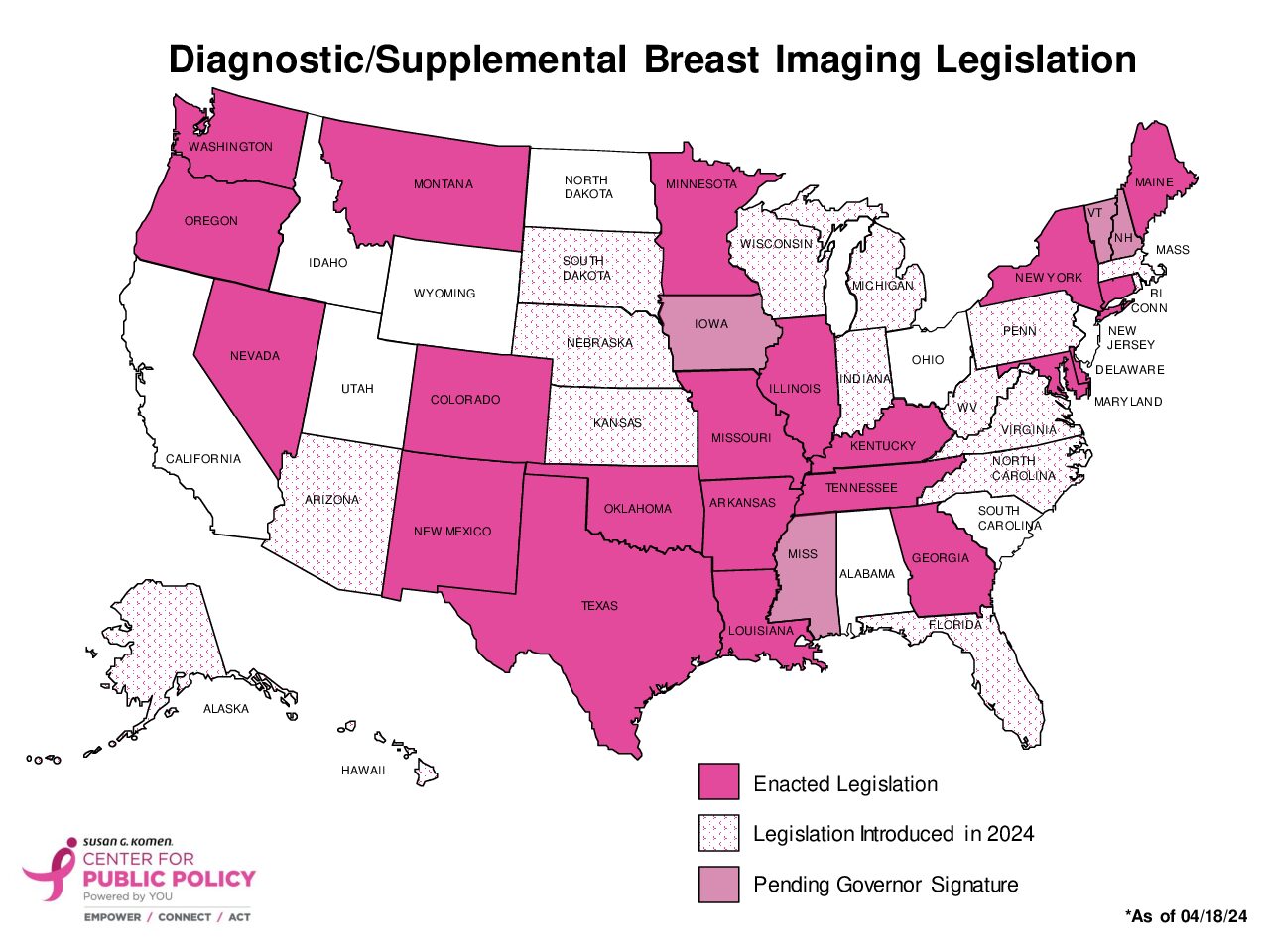Thank you for another great year of advocacy on behalf of the breast cancer community and Susan G. Komen’s Center for Public Policy! Your voices have helped Komen achieve significant policy wins this year.
After months of deliberation and debate, today, lawmakers finally reached agreement on an omnibus and Fiscal Year 2023 (FY23) appropriations package. As the 117th Congress ends and we look toward 2023, Komen is thrilled to announce that the package includes many issues that Komen advocates have been pushing for throughout the year.
The legislation provides funding for priority programs, including:
- The National Breast and Cervical Cancer Early Detection Program (NBCCEDP) received an increase of $3 million and will receive $200 million in FY23. In a win for our community, this increased funding will help improve access to screening, diagnostic, health education and patient navigation services to more eligible individuals.
- The National Institutes of Health (NIH) is slated to receive $47.5 billion, an increase of $2.5 billion above the 2022 enacted level.
- The National Cancer Institute (NCI) budget was increased from $6.9 billion in 2022 to $7.3 billion in 2023.
- The Advanced Research Projects Agency for Health (ARPA-H) saw a modest increase and will be funded at $1.5 billion.
- The Breast Cancer Research Program at the Department of Defense (DoD) was level funded at $150 million.
The package also contains other important policies that will help the breast cancer community, including:
- An extension of the moratorium on the implementation of the U.S. Preventive Services Task Force (USPSTF) screening recommendations for breast cancer until 2025 through the Protecting Access to Lifesaving Screenings (PALS) Act. Thanks to its inclusion, annual screening mammograms will remain covered by insurance without cost-sharing requirements for women starting at age 40.
- The Lymphedema Treatment Act, which creates a new benefit category in Medicare for custom fitted lymphedema compression garments and other approved items prescribed by a doctor or other health care provider starting in 2024. With 40 percent of breast cancer survivors at risk of developing life-long lymphedema as a result of their treatment, this is a huge step in reducing the financial burden of breast cancer on patients and survivors. Passage of the Lymphedema Treatment Act comes after years of advocacy from our community and many others. Thank you to all Komen advocates who helped this legislation become law.
- Language encouraging the Department of Health and Human Services (HHS) to examine opportunities to increase utilization of genetic counseling and testing for breast cancer in Black women. The language also directs HHS to issue a report on addressing barriers to increasing access to and utilization of genetic counseling and testing for all populations, including how to increase health equity in this area. The report must accompany the 2024 federal budget process.
- The legislation includes provisions intended to improve clinical trial diversity, which encourages manufacturers to create diversity action plans and reduce barriers known to keep certain racial and ethnic groups, older adults, rural residents, and those with limited incomes from being appropriately included.
- A provision requiring the Food and Drug Administration to issue or revise existing guidance on considerations for the use of real-world data and real-world evidence to support regulatory decision-making within a year.
- An extension of telehealth flexibilities until 2024, to ensure that people can still have access to this new mode of care that so many enjoy.
- The end of year bill also included provisions that will impact coverage for people who have Medicaid. As part of the COVID-19 public health emergency (PHE), state Medicaid programs were not allowed to remove anyone from their rolls. This bill includes a provision allowing for Medicaid eligibility re-determinations to restart as of April 2023 regardless of the status of the PHE. Millions of people will have to complete this process or risk losing their health care coverage. Komen will release more information on how to prepare in the new year.
As excited as we are for our successes, we are disappointed that other key priorities were not included in this package and pledge to work on their introduction and enactment next year. The 117th Congress brought unpredictable challenges, yet breast cancer advocates persevered, and your engagement allows Komen to continue its efforts to relieve the burden of breast cancer for patients, survivors and their loved ones. As we look towards the beginning of the 118th Congress in the new year, the Center for Public Policy looks forward to continuing this tireless work together.



